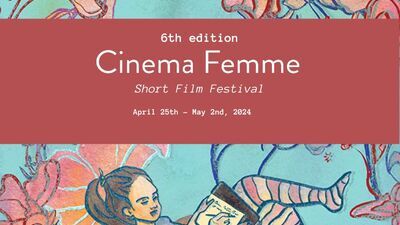This year, the mentorship program is a retreat. How is this different from years past, and what will this change look like?
In past years, it was the mentor meeting the mentee in person or via Zoomfor 30 minutes minimum a month for six months. They could decide where they want to take it. The mentor could read over scripts of the mentee, give feedback, or get involved as much as they want. Like Haroula Rose, who we’re highlighting this year as our tribute filmmaker, she was a mentor for our first year and she actually went to London to visit her mentee, which I think is so cool. The retreat was recommended by Melora Walters, one of our mentors for the last two years, and I thought it was a great idea.
Galena, Illinois is a place I love, and it’s a great place to reboot, you know? If we could have a weekend where the mentors and the mentees could get together, they could get to know each other more. There’s a workshop element, but we can also do outdoor activities together, like hiking with goats! It’s so cool, and I think it’s good because we’re getting back to in-person now, and it’s better, I think, to have something more contained in a short period of time rather than like a half-hour minimum once a month for six months. This gives the mentors a chance to concentrate more with the mentee because we’ll all be in the same place.
It’s admirable that Cinema Femme covers the bases from idea conception through final criticism through this festival, the mentorship programs, and the publication itself. What goals do you have for Cinema Femme moving forward?
I would like to do more community, in-person events. There was a period of time when I thought we should have Cinema Femme filmmaker meetups in all the cities around the world. Filmmakers from L.A. and New York come here, and I hear, “We don’t have this kind of community,” so I feel like having spinoffs of our Cinema Femme-type spirit events and maybe even screenings in other cities.

